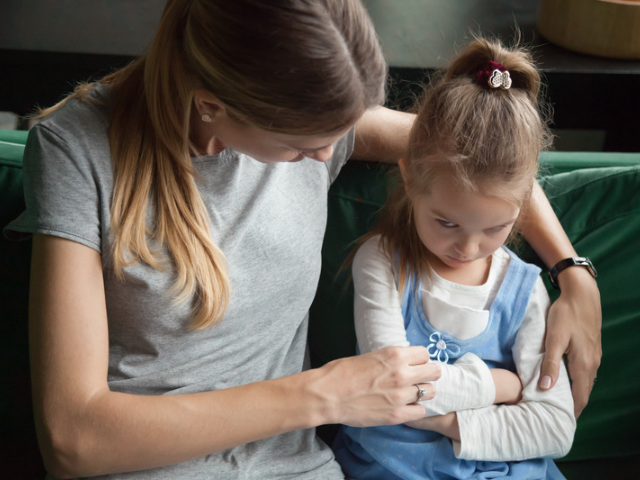Learning from failure is difficult. Parents want their children to do well and be successful. As a result, we may try to clear away any problems or obstacles that might get in their way. This is sometimes called being a “snowplow parent.” Like how a snowplow pushes snow out of the way, we parents try to make it easy for our children, so they do not fail. But learning from failure is important for children sometimes to fail because it helps them learn and grow. When children fail, they can think about what went wrong and how they can do better next time. This is good for developing problem-solving skills and thinking critically.
Children need to learn from their mistakes. Think about how you learned not to touch a hot stove. Maybe your parents taught you not to touch it. Or perhaps you touched it and got burned and realized that you should not touch the stove again because you got hurt. This is a learning from failure experience that shows our children that there are natural consequences to their behavior.
Learning from Failure through Natural Consequences
A natural consequence happens naturally after or because of an action. Another example of natural consequences is if a child does not wear a coat on a cold day. The natural consequence would be that they get cold. These natural consequences help people learn from failure and change their behavior. Learning like putting on their jacket, so they don’t get cold again. Children can also learn by watching others make mistakes (like their parents!). They need to see how you, as a parent, react to or handle those mistakes. This teaches them appropriate ways to respond and move forward. It is important for children not to be afraid of failing and to see it as a chance to learn new things. Sometimes, parents might make children scared of failure, which can hold them back from doing what they love or reaching their goals.
“The [other] problem with never having to struggle is that you never experience failure and can develop an overwhelming fear of failure and disappointing others. Both the low self-confidence and the fear of failure can lead to depression or anxiety” – Julie Lythocott-Haims, How to Raise an Adult: Break Free of the Overparenting Trap and Prepare Your Kid for Success
Handling Failure
When children learn how to handle failure at a young age, they learn that failure is not the end. Instead, it is just another chance to grow and learn. They learn from failure. This helps them to be more willing to try new things and go after their goals. This is what parents want for their children! When children fail, they learn important things like being aware of themselves, taking responsibility, and bouncing back. By taking responsibility for their actions, children learn that they have the power to change their own lives and make things happen. Failing and learning from natural consequences may seem scary, but it is needed!
Opportunities to Learn from Failure
Opportunities to learn from failure and mistakes happen every day! Here are some ways to help your child learn and grow by letting them experience failure. This can help them improve at solving problems and making mistakes without fear.
| Try this! |
Not That! |
| Have your child think about what did not work and encourage them to try again! | Punish or get frustrated with your child for not getting something right. |
| Ask your child questions: “What could you have changed?”, “How do you think your friend feels?”, “How can you solve this problem?” | Fix peer conflict for your child. |
| Model or show your child how to problem-solve.
Say, “That didn’t work. Let me try doing it this way.” Or “That’s okay, I will try something different next time.” |
Hide your mistakes from your child or react negatively to your challenges in front of your child. It’s okay to show emotion but walk your child through it! |
| Provide choices and provide guided support. Example: When playing with a shape sorter, your child tries to put the square in the circle hole, give them 2-3 shapes (circle, square, triangle) to your child and encourage them to try to figure it out on their own. | Solve the problem for your child without using it as a learning experience. *Don’t provide the circle shape to your child. |
| Ask, “what have you tried?” or “I want to see you try first, and then I will help.” Then provide feedback: “I like how you continued to try to figure out that puzzle before you asked for help.” | Immediately help them when they ask for it. |
| Explain the natural consequences of behavior. “If we throw toys at other people, they might not want to play with you anymore because they are sad.” | Saying, “That’s life” or “That’s what happens,” and not explaining why the failure happened. |
Let them Fail!
It can be hard to watch children fail, but they are learning valuable lessons. For example, they are learning how to change their behavior, how to solve problems, and that it is okay not to be perfect. As parents, listening to your child, encouraging them, and validating their experiences is important. But try not to solve their problems! By letting them fail, you are teaching them lifelong lessons.




